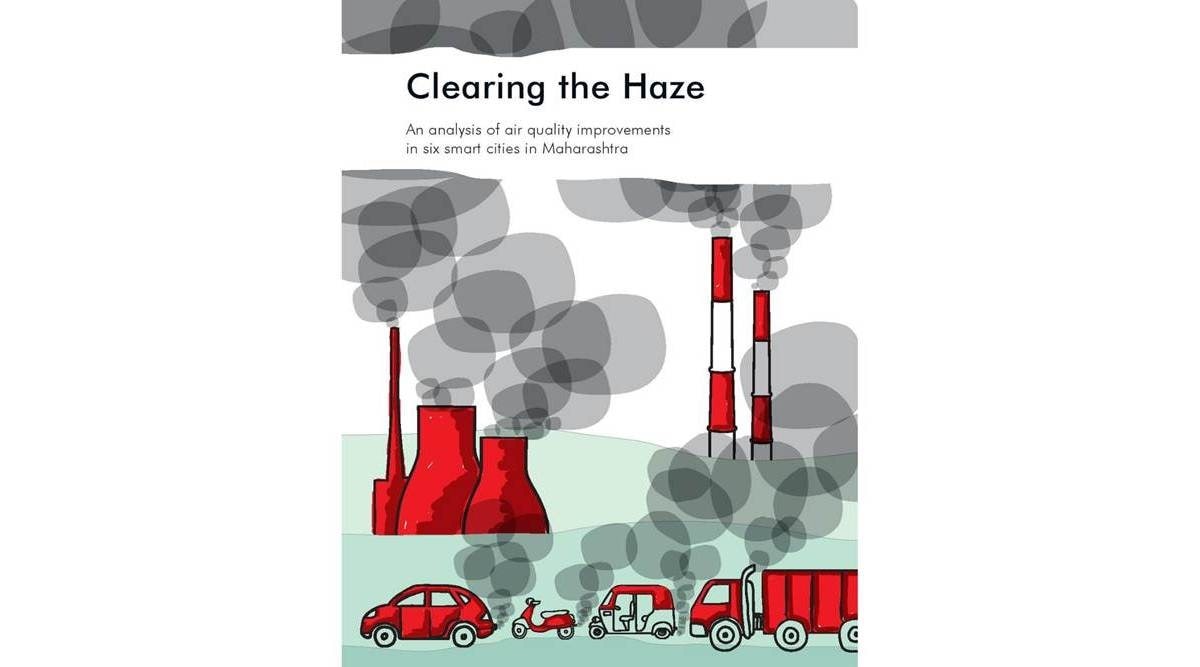 Parisar hosted an online event for the release of its report, ‘Clearing the Haze: An analysis of air quality management in six smart cities in Maharashtra’, on Friday. (Photo Source: parisar.org)
Parisar hosted an online event for the release of its report, ‘Clearing the Haze: An analysis of air quality management in six smart cities in Maharashtra’, on Friday. (Photo Source: parisar.org)NGO Parisar, which works in the field of environmental awareness, has released a report on air quality management in six smart cities in Maharashtra. Smart Cities Mission Director Kunal Kumar has asked the cities to take the findings of the report constructively in the quest for cleaner air.
Parisar hosted an online event for the release of its report, ‘Clearing the Haze: An analysis of air quality management in six smart cities in Maharashtra’, on Friday.
Parisar said the report was based on a study done in six non-attainment smart cities of Maharashtra — Aurangabad, Pune, Nashik, Nagpur, Solapur and Thane. To understand how the Smart Cities Mission has dealt with deteriorating air quality in cities, the study looked at how the cities determined their base level (on a scale of 1-4), projects they proposed to improve air quality and finally the status of those projects. The study used data from the smart city SPVs, and stakeholder consultations.
As per the findings of the study, all cities have fitted air sensors under the mission, “but there is no clarity on how the data generated by these is and will be used by the city.”
“Mission city information such as project status and actual outcomes were difficult to obtain,” the report stated.
While it is mandatory for each city to report on air quality in the proposal, there is no logic as to why certain projects have been proposed and to what extent they would help improve air quality.
Poor convergence was found between the city AQ action plans made under the National Clean Air Programme (NCAP) and the Smart Cities Mission. While it was announced that the mission would be used to leverage the NCAP in the 43 non-attainment smart cities, the analysis shows this goal has not been achieved, the report stated.
The Parisar event was attended by Kunal Kumar as the chief guest, along with officials from the cities. Kumar said it is crucial to understand that cities and their issues are governed by a continuum, and the city’s life cycle and the stage of development they are in currently. “That is why cities which are poster boys of clean air today like London and Tokyo, were in fact highly polluted in the 1970s and 80s,” he said, adding that smart cities are not made in one or two years.